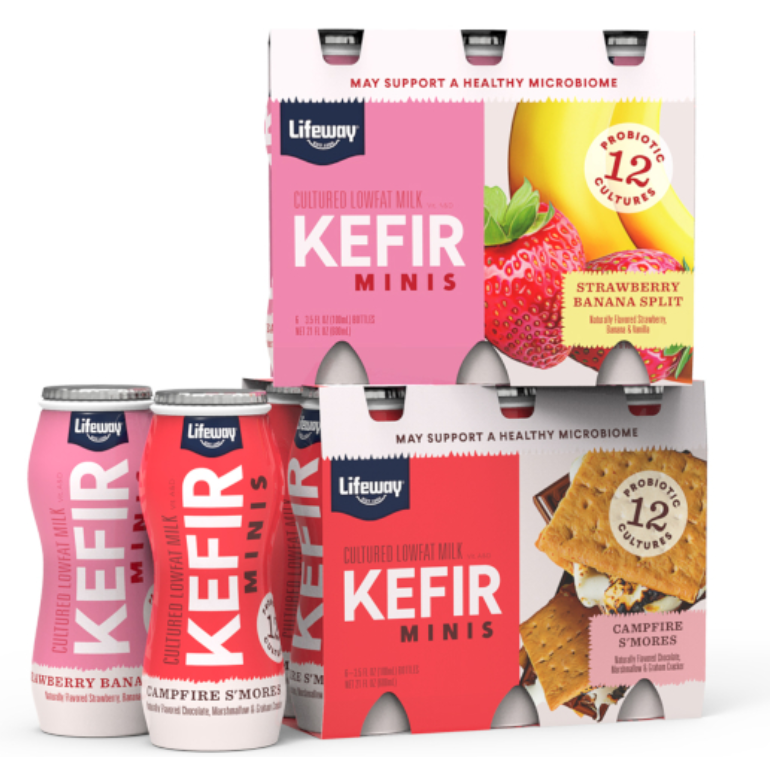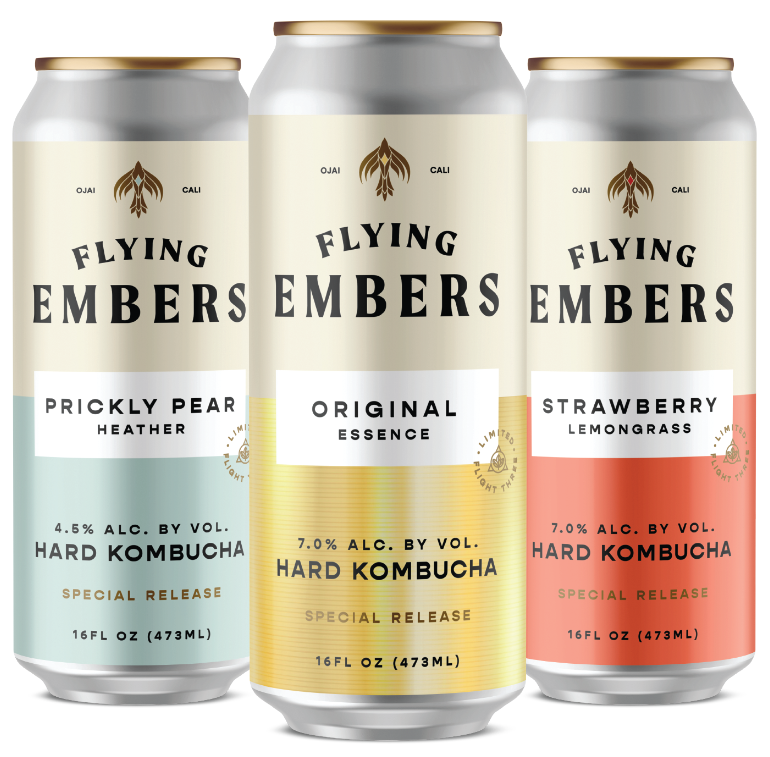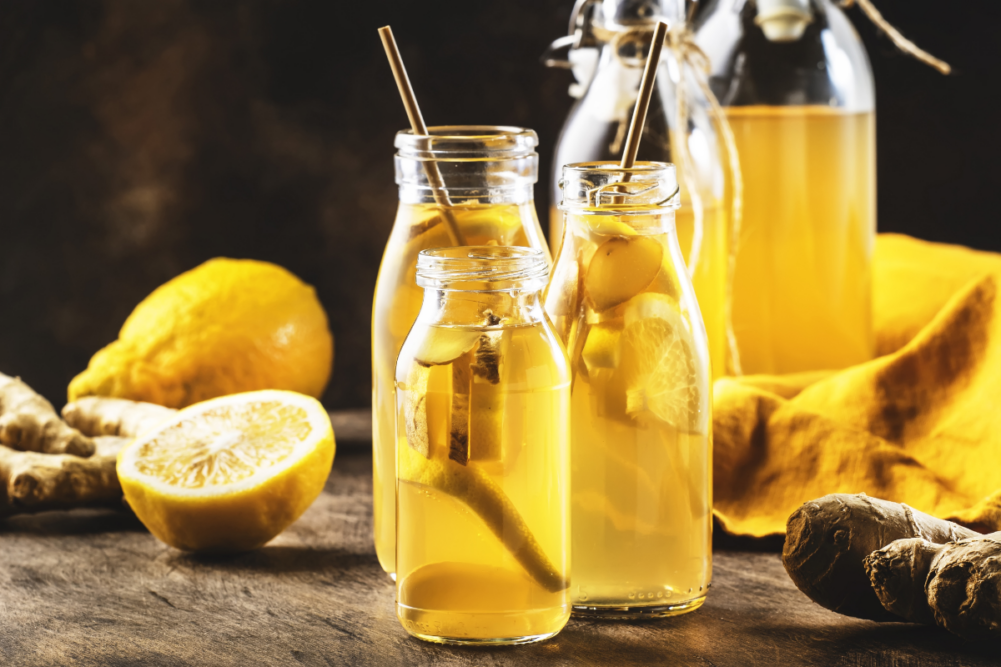CHICAGO — Consumers already were interested in products with immune-enhancing benefits prior to the coronavirus (COVID-19), but earlier this year, as the pandemic took hold, the trend accelerated. An immediate category of interest was fermented foods and beverages with live and active cultures, namely probiotics, which are associated with enhancing immunity by improving the gastrointestinal microflora.
Probiotics are live microorganisms, most often lactic acid bacteria. When consumed, they join the trillions of bacteria that inherently reside in the gastrointestinal system and help create a better-balanced microflora. Probiotics play an integral role in immune function by preventing the attachment and activity of pathogenic bacteria in the gut. Though they are typically not directly involved with fermentation — the microbial conversion of sugars to acids, alcohol and carbon dioxide — they are often part of the culture cocktail.
“Wine, beer and hard ciders are all fermented beverages,” said Juliet Greene, corporate chef, Mizkan America, Mount Prospect, Ill. “We don’t typically think of them as being fermented, as they do not contain live and active cultures.”
Yeast typically ferments the sugars in the beverages, converting them into alcohol and carbon dioxide. The yeast ceases activity when all the sugar is converted or the alcohol content gets to a level where it inhibits further yeast activity. Then the yeast drops to the bottom of the fermentation vessel and is removed with other sediment. It is the fermentations that take place in the manufacture of cultured dairy beverages, kombucha and vinegar ciders that may give beverages immunity-boosting properties.
“We’ve seen awareness of the connection between health and diet gain momentum as the COVID-19 virus continues to impact communities around the globe,” said Becca Henrickson, marketing manager, Wixon, St. Francis, Wis. “The result of this is people are putting a greater focus on products, such as fermented beverages, which can help them support a healthy immune system.”
Lifeway Foods, Morton Grove, Ill., was founded 34 years ago on the purpose of delivering probiotics through the fermented dairy beverage known as kefir. Lifeway’s kefir contains 12 live and active bacteria recognized with enhancing digestion and boosting the immune system.

In the early weeks of the pandemic lockdown, Lifeway experienced a surge in sales and record orders and shipments, said Julie Smolyansky, chief executive officer. In markets where the company’s drivers restock refrigerators, they were doing it twice a day. This is about 200 cases of 32-oz bottles of kefir, or 1,200 bottles of kefir, selling in one supermarket in one day.
“It’s our quart bottles that were selling and continue to sell,” Ms. Smolyansky said. “Consumers recognize the value and are investing in their health. Kefir is a fermented product, so by design, that fermentation functions as a natural preservative. It has a long shelf life, so consumers are stocking up.”
Farmhouse Culture, Chicago, produces brewed, filtered naturally fermented vegetable juice gut shots in varieties such as garlic dill, ginger beet and golden turmeric. The shots are made with savory, wild fermented kraut juice, which means that no starter cultures are added. The juices contain the cultures inherent to the cabbage, which is usually a range of lactic acid probiotics. The shots contain no added sugar or dairy.
“Gut shot demand has been booming as consumers seek products with immunity benefits,” said Brian Evangelista, vice president of marketing. “Retailers have been building health and wellness destinations in store, but have been slow in incorporating wellness shots versus traditional supplements. It’s clear that now the shot segment is getting a ton of attention.”
Finland-based Probitat is a company founded on the principles of fermentation for better health. The product line includes fermented plant-based smoothies containing quinoa, fruits and vegetables.
Drinking vinegars are indirectly fermented beverages because their main ingredient is vinegar, usually apple cider vinegar (ACV). It is produced through a two-step fermentation process. First, yeast converts the inherent sugar into alcohol. Then bacteria turns the alcohol into acetic acid, the sour component of all vinegars. Vinegar with the “mother” is unfiltered and retains the yeast, bacteria and byproducts of fermentation. The “mother” also refers to beneficial bacteria that remain alive in the vinegar, which are recognized as having probiotic function. The bacteria make the vinegar appear cloudy.
“Ready-to-drink beverage manufacturers using ACV as an ingredient typically purchase the vinegar in bulk tankers,” Ms. Greene said. “But smaller containers are available, too.
“These beverages are getting more complex, with a layering of flavors. They are also being positioned as ‘zero-proof’ beverages or mocktails. The ACV gives the drink some zing, like gin or vodka.”
Sober-curious consumers find such beverages allow them to double-down on health benefits. There’s no alcohol, and they contain functional ingredients.
“Drinking vinegars are also less expensive than kombucha, as it’s a much simpler and shorter manufacturing process,” Ms. Greene said. “But kombucha is definitely becoming more popular.”
Kombucha, a Chinese fermented tea drink, has gone mainstream in recent years, with many retailers stocking multiple brands of the perishable beverage. It is made with a microbial cocktail referred to as SCOBY, an acronym for symbiotic culture of bacteria and yeast, and provides a healthful dose of probiotics. It is slightly effervescent and naturally has a trace of alcohol, which is less than 0.5% alcohol by volume. This is the cut-off for the US Food and Drug Administration’s distinction between alcohol and non-alcohol.
To make the “hard” high-alcohol version of kombucha, brewers modify the manufacturing process to include an extra fermentation step. This includes an additional strain of yeast and extra sugar for the fermentation, which often is extended by a week or two. Some microbrewers are blending kombucha with their signature craft beers to add a twist of healthfulness.

Flying Embers, Ventura, Calif., added three hard kombucha varieties to its line this summer. The Original Essence drinks like a dry white wine and is the origin and base for all the flavored versions. Its creation began by fermenting steeped organic black tea, adaptogen botanicals and cane sugar, resulting in a naturally sweet and tart hard kombucha with a refreshing, effervescent finish. The new flavored offerings are prickly pear and strawberry lemongrass.
Flying Embers added three hard kombucha varieties to its line this summer.[/image-with-caption]
“Kombucha in the beverage world is where sriracha once was in condiments,” Ms. Greene said. “Product developers have worked hard on flavor development to mask the bold fermented tea flavors with more mainstream flavors in order to grow the customer base. Many are also offering additional benefits.”
Buoy Hydration, Newport Beach, Calif., for example, is partnering with M Kombucha, Vista, Calif., to launch Beyond Hydration, an electrolyte-dense functional kombucha flavored with fresh, organic cold-pressed grapefruit and ginger. The beverage features Buoy Hydration’s formula of low-sodium, natural sea salts, including 87 micronutrients and trace minerals. It includes fair trade black and green teas, kombucha culture and fair trade evaporated cane sugar, which is needed for kombucha fermentation.
It also contains a range of better-for-you ingredients, including acacia fiber, which functions as a prebiotic to increase beneficial bacteria. The herbs star anise and rosemary also are added. Both are concentrated sources of antioxidants associated with boosting immunity.
“As demand ramps up for immune-enhancing products, manufacturers have an opportunity to innovate with immune-supporting ingredients and flavors,” Ms. Henrickson said. “When flavoring beverages with immune support ingredients, selecting flavors that increase or complement a product’s health perception is optimal.”
Many of the flavors are derived from ingredients with known immunity support or are flavors that naturally carry a healthful halo. This includes botanicals and fresh herbs. Using them in such products may further solidify their immune-enhancing benefit positioning.
“Often when using these natural organic materials as flavoring agents in beverages, we need to compensate for herbal off notes or inherent bitter tastes that may occur,” said Ryan Kukuruzovic, corporate chef at Wixon. “For example, when developing with a sweet, fruit-based profile like elderberry, challenges arise with its natural top-note flavor, which can be bitter or medicinal-tasting at high levels.”
Further, fermented beverages with live and active cultures continue to evolve during shelf life. They are, in fact, living systems. It’s paramount that the flavor be the same at the beginning, throughout and at the end of shelf life.
“It is also important to consider the flavor impact certain types of fortification will have in a blend,” Mr. Kukuruzovic said. “Fortifying with vitamin C, for example, can increase the citrus and sour notes found in a blend. Depending on the application, you may want to mask the citrus flavor, enhance it or pair it with a complementary flavor.”





